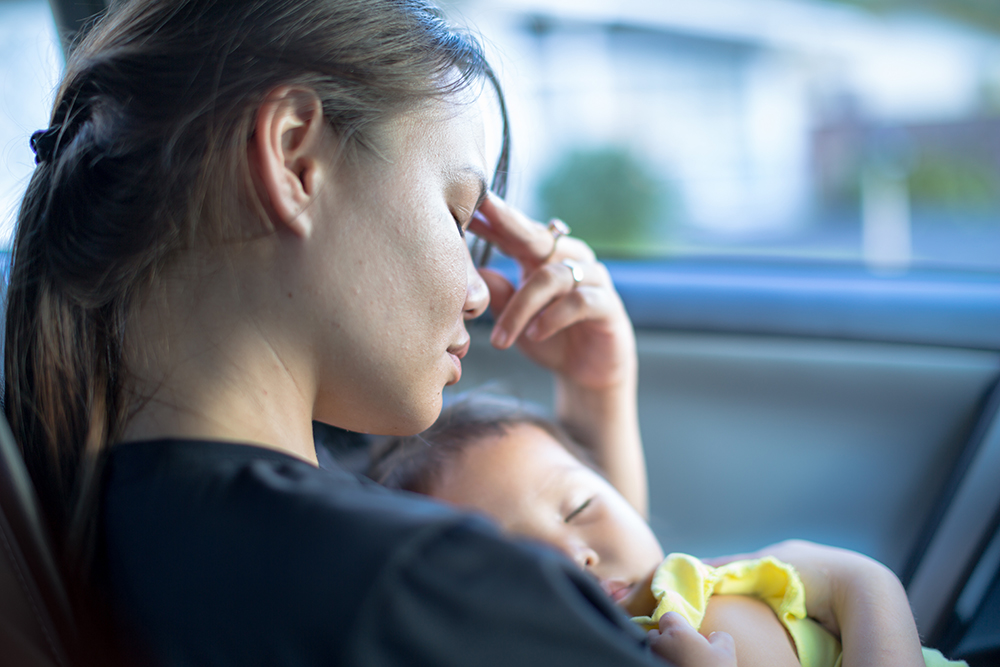Even if you had a relatively complication-free pregnancy and delivery, every new parent naturally worries about their baby’s health and well-being. However, if feelings of impending dread have become overwhelming and are starting to interfere with your sleep or daily activities, you may have postpartum anxiety. Read on to understand this condition and discover how Pine Grove’s specialized women’s mental health programming can help heal you.
What Is Postpartum Anxiety?
Having a baby can be an incredible experience, but many new mothers still experience the “baby blues,” characterized by symptoms like insomnia and irritability. Usually, the baby blues is a passing phase, but that’s not always the case.
Postpartum anxiety shares similarities with a better-known mental health challenge called postpartum depression. It’s possible to experience both conditions simultaneously, complicating diagnosis and treatment. Recognizing the need for professional care is essential, as feeling too overwhelmed can prevent you from bonding with your baby.
Factors that may increase your susceptibility to postpartum anxiety include a family history of mental health issues, past miscarriages or stillbirths or previous bouts of anxiety or depression. Additional stressors like new parenting challenges, unexpected expenses and relationship changes can also contribute.
Types of Postpartum Anxiety
Postpartum anxiety can manifest in these ways. Understanding these can be key to seeking appropriate care.
- Postpartum OCD: You might experience intrusive thoughts about harm coming to your baby and feel driven to repeat specific actions to prevent it.
- Postpartum panic disorder: This condition may lead to sudden panic attacks, with symptoms such as chest pain, shortness of breath and feeling like you are dying.
How to Get Treatment for PPA
You don’t have to face postpartum anxiety alone. Pine Grove’s Women’s Center offers an environment uniquely suited to women’s mental health needs, ensuring you receive personalized care.
Evidence-based approaches like dialectical behavioral therapy can help you build emotional resilience, while complementary practices like yoga and meditation may encourage mindfulness. Finding the right treatment may take time, but with Pine Grove’s team by your side, you can find the path to recovery.
Specialized Women’s Mental Health Programming at Pine Grove
At Pine Grove’s Women’s Center, we embrace a women-helping-women approach that recognizes the unique challenges new mothers face during the postpartum period. We provide compassionate services for women at all stages, including those who are pregnant or have recently given birth.
Our expert team understands that each client has different needs, and we’re here to guide you on a journey to lifelong recovery. If you are living with postpartum anxiety, we invite you to reach out to us today. Together, we can work to stabilize your mood and foster a nurturing relationship with your new child, empowering you to embrace the joy of motherhood.

